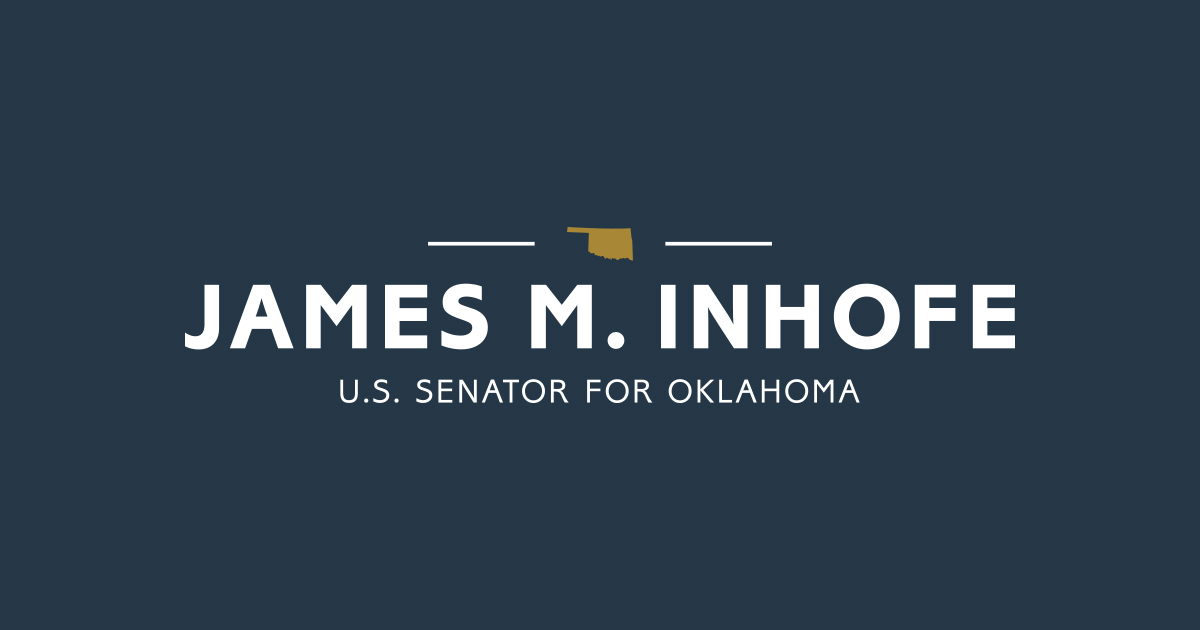Source: United States Senator for Oklahoma James Inhofe
Today, U.S. Sen. Jim Inhofe (R-Okla.) questioned witnesses at an EPW committee hearing regarding the challenges facing the transportation sector and rural communities.
Witnesses included: Managing Director of Highland Fleet, Matthew Stanberry; Chief Commercial Officer of EVgro, Jonathan Levy; Executive President, Plum Contracting, on behalf of Associated General Contractors, Ali Mills; Vice President, Land and Quarry at Granite Construction, on behalf of National Stone, Sand & Gravel Association, Gary Johnson and President and CEO, American Road and Transportation Builders Association, Dave Bauer.
Click here to view Inhofe’s remarks.
Carper: Senator Inhofe, you are recognized.
Inhofe: Thank you Mr. Chairman. I want to thank Mr. Johnson for his comments. It’s been a mission of love over all of these years so I appreciate that very much. Ms. Mills, we have something we are faced with right now, and it is this level of inflation that creates other problems. Over the last year, how has your company managed the workforce and supply chain challenges in the face of, what I’d call, the multi-decade high inflation environment that we’re in?
Mills: Yes, as I spoke before, we are actually one of the biggest highway edge drain installers on the east coast. What we do is we put in plastic pipe – and we all know what happened with plastic pipe in the past year. We install about a million and a half feet a year across the east coast and our pipe pricing went up 80% since last year. So something that used to be below a dollar is now close to two dollars, and a contractor of my size cannot absorb a million-dollar loss continually with all these issues.
Inhofe: As easily, perhaps, as some of the larger companies are able to do. As you know, Oklahoma is a rural state and the unique problems that you’re facing right now are in states like Oklahoma.
Mills: And in Pennsylvania, where our company is located, we are also pretty rural. We are outside of Pittsburg. But we are having trouble getting people to drive to job sites because of the cost of fuel. Some of our projects are an hour away and our employees are picking more urban areas to go to work or other jobs outside of the construction industry because they can’t afford to drive that hour and pay for gas.
Inhofe: I haven’t thought about that. Well, Mr. Bauer, would you speak to the challenges to the timely completion of surface transportation projects? What unique problems are you facing?
Bauer: We talked a moment ago about one federal decision and how that has the potential to very much assist the situation, but we also can’t overlook the challenges that occur from the lack of regulatory clarity on a lot of other issues. Case in point, you all have been aware for the last several administrations that the issue related to wetlands, and specifically Waters of the U.S., has bounced back and forth from administration to administration. The Obama Administration had a proposal, the Trump Administration repealed it, they came up with their own and the Biden Administration has repealed that. And all along, our community is trying to advance projects with this changing set of rules in the middle of the game that makes it very difficult, and wetlands are certainly a significant component of infrastructure projects. Waters of the U.S. isn’t the only situation where that occurs, but I think it is a very well-understood one to help make a point here.
Inhofe: I think it has. From our perspective, and you’ve been dealing with this for a long period of time. For those of us who are sitting up here on this side of the table, what should we be looking at that needs more attention today than it has in the past? Dealing mostly with the fact that you bring up that these are problems that different administrations come in and they change because those people who are serving don’t always know how difficult it is to change once you get a path going.
Bauer: I certainly recognize the challenge of passing legislation. But the ongoing oversight, that you have started preforming, I think is essential to assuring that the law is implemented, as it was intended, is critically important. At the same time we can’t overlook the need to deliver the federal funds in a timely manner. [I] recall the first year of the bipartisan infrastructure laws round of investment came six months into fiscal year twenty two. And states obviously were able to commit those funds but a six month late start doesn’t help. So the earlier in the construction season that funds are provided through the annual appropriations process is another area besides regulatory certainty and oversight that can be very helpful.
Inhofe: Okay, thank you very much. Thank you, Mr. Chairman.
